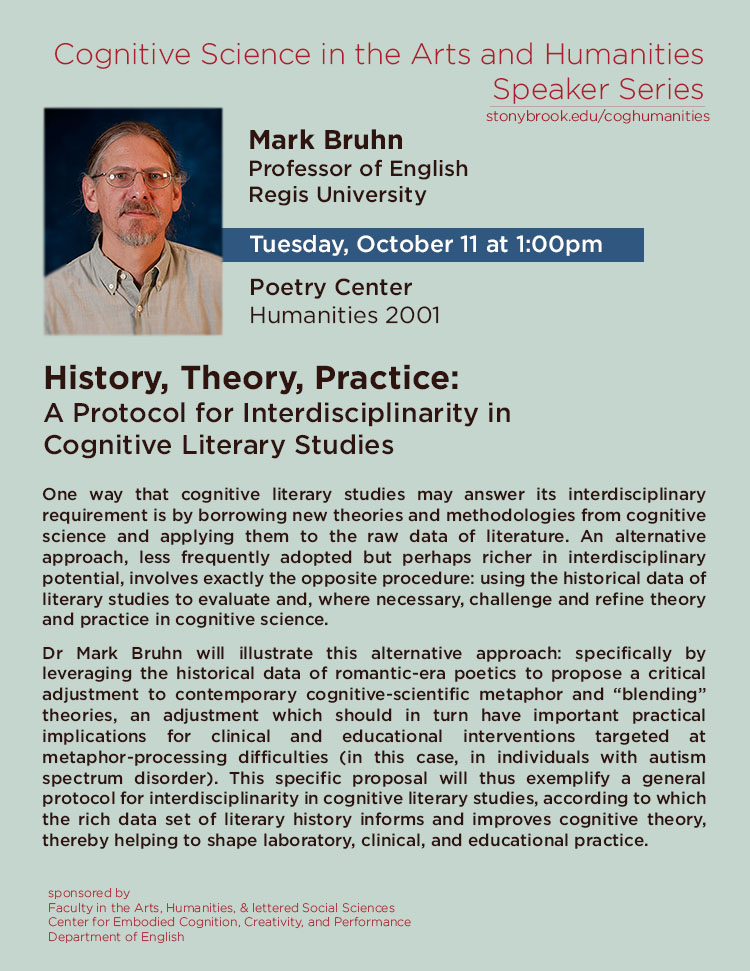Mark Bruhn
History, Theory, Practice: A Protocol for Interdisciplinarity in Cognitive Literary Studies
11 October 2016
Cognitive literary studies is, by definition, an interdisciplinary enterprise, so one measure of the field’s success must be its impact on research outside of "literary studies," in particular within the allied fields of psychology, neuroscience, linguistics, philosophy of mind, biological anthropology, etc., that constitute, precisely by contributing to, “cognitive” science. One way that cognitive literary studies may answer this interdisciplinary requirement is by borrowing new theories and methodologies from cognitive science and applying them to the raw data of literature. An alternative approach, less frequently adopted but perhaps richer in interdisciplinary potential, involves exactly the opposite procedure: using the historical data of literary studies to evaluate and, where necessary, challenge and refine theory and practice in cognitive science.
My talk will illustrate this alternative approach: specifically, it will leverage the historical data of romantic-era poetics to propose a critical adjustment to contemporary cognitive-scientific metaphor and “blending” theories, an adjustment which should in turn have important practical implications for clinical and educational interventions targeted at metaphor-processing difficulties (in this case, in individuals with autism spectrum disorder). This specific proposal will thus exemplify a general protocol for interdisciplinarity in cognitive literary studies, according to which the rich data set of literary history informs and improves cognitive theory, thereby helping to shape laboratory, clinical, and educational practice. Put simply, by being alert to the cognitive implications of the creative and critical texts they study, professional scholars of literature (and of other cultural artifacts and traditions) may contribute directly, even indispensably, to the interdisciplinary projects of the cognitive sciences.
Watch video:
Download audio here:
https://archive.org/details/Bruhn-Coglit
View Dr Mark Bruhn's work: markbruhn.com

